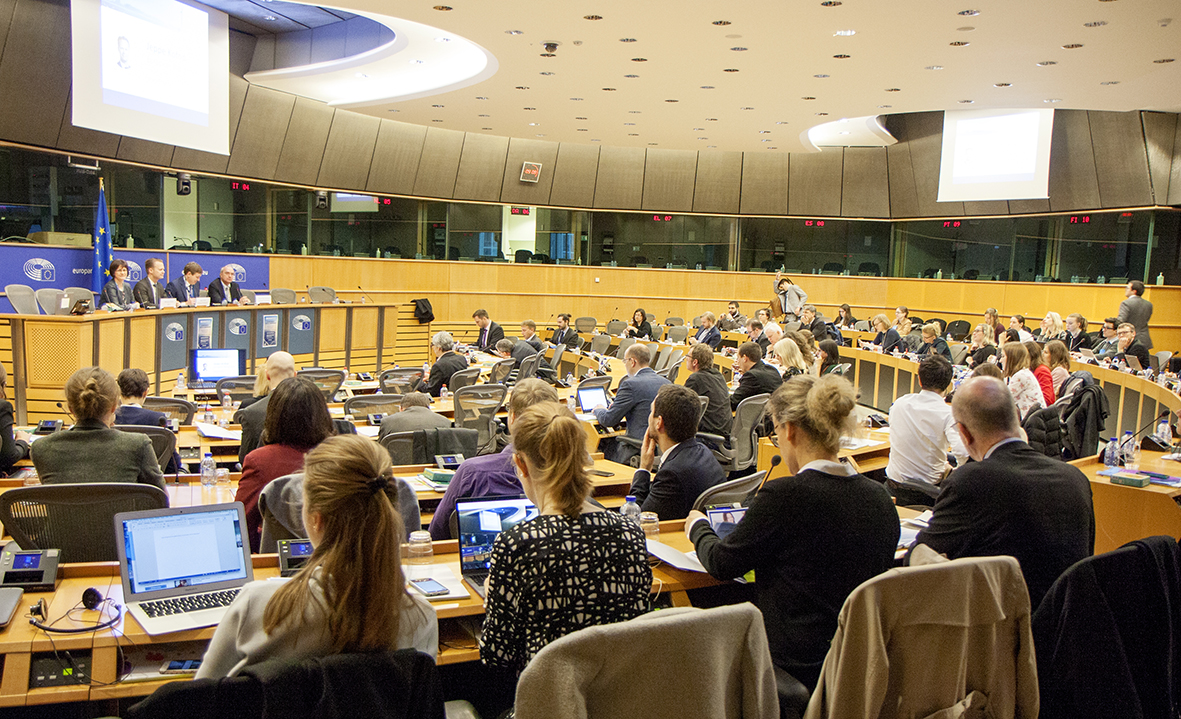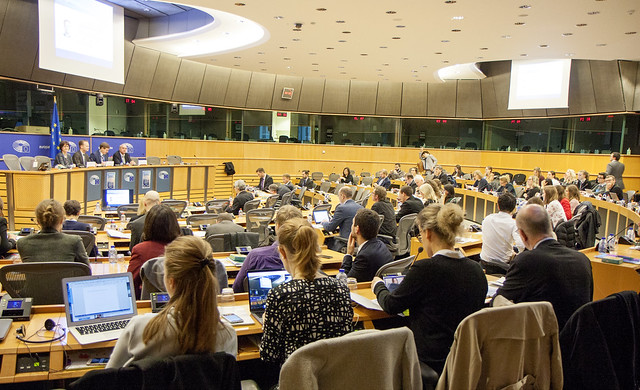BEUC energy conference- ‘Clean Energy for all Europeans? What’s hot and what’s not for consumers’
BEUC energy conference- ‘Clean Energy for all Europeans? What’s hot and what’s not for consumers’
BEUC NEWS - 16.03.2017
On 9 March, BEUC organised a conference in the European Parliament on the impact for consumers of the EU energy policy proposals.
 Consumer organisations, policy makers and the industry debated whether the revision sufficiently addresses long standing consumer headaches such as switching and bundled offers. They also had the opportunity to discuss privacy as well as consumers’ role in future energy markets.
Consumer organisations, policy makers and the industry debated whether the revision sufficiently addresses long standing consumer headaches such as switching and bundled offers. They also had the opportunity to discuss privacy as well as consumers’ role in future energy markets.
MEP Kofod opened the conference and highlighted the importance to deliver a consumer-friendly Energy Union. He talked about new ways of engaging consumers, be it through new services or self-generation. He also stressed that data protection is a prerequisite for a smart energy system.
An open dialogue between consumers and institutions
Since the average consumer won’t read technical or legal documents, Klaus Dieter Borchardt, Director responsible for the Internal Energy Market at the European Commission made it clear that institutions must find other ways to communicate with consumers, for example through workshops where consumers can experience how to engage with energy. His vision for the future of the energy market: consumers choosing energy providers the same way they already do for flight tickets and holiday packages. Monique Goyens, Director General of BEUC, introduced the theme of energy self-generation as a means for an inclusive energy transition. While Mrs Goyens recognised energy markets are developing and consumers can sign up to more innovative offers, she pointed out the risks of what she called a grey area: bundles including a mix of financial, telecoms and energy services.
Switching
Andrzej Bucko from the Polish Consumer Federation reminded us that in Poland, the average household pays around € 13 per month for energy supply but the termination fee can be twice as high for each remaining month of the contract. Ivo Mechels from the Belgian consumer organisation Test Achats reported that the abolition of switching fees lead to increased consumer mobility in the Belgian energy market. Lewis Shand Smith, Chair of the National Energy Ombudsmen Network highlighted the importance of getting a better deal when switching – despite a 30% increase in switching in the UK, consumers don’t feel they are better off. MEP Theresa Griffin called for a ban on doorstep selling and said that energy suppliers should tell consumers about their cheapest tariff.
Bundled offers
The switching discussion was followed by a lively debate on bundled offers. Carolina Gouveia from DECO, the Portuguese consumer organization, shared with the audience a case of a Portuguese consumer who opted for an energy offer bundled with a payment insurance in case of illness. When the contract arrived, the consumer realised this insurance was only for employed people while he was retired. The consumer complained to both the energy and insurance regulator who claimed it would not fall within their competences. The principle of such offers should not be considered as a bad one, according to Kristian Ruby, Secretary General of EURELECTRIC, who nevertheless acknowledged that these constitute a big challenge for regulators. MEP Theresa Griffin underlined that energy is not a commodity but a basic social right. People should not have to choose between food and heating, energy supply must be affordable. She pointed out the need for trusted sources of information and advice such as consumer organisations.
Consumers in future energy markets
MEP Benedek Javor asked for easier access to capital for consumers that wish to invest in renewables in order to prevent that the energy transition widens the gap between different consumer groups. Rik Temmink from Green Energy Option sees batteries and dynamic storage as a future game changer while Julien Janes from the Council of European Energy Regulators expressed the hope that new business models could help consumers become more active by choosing supplier for them.
Concerning data protection, Isabelle Buscke from the Federation of German Consumer Organisations (vzbv), underlined how revealing information from smart meters could be about consumers’ lifestyles. A testimony by Martin Salamon from the Danish Consumer Council underpinned the need of data protection and security. In 2013, an electricity supply company in Denmark made accidentally available its clients data for a period of three weeks.
Monique Goyens, BEUC Director General, closed the conference saying that the Clean Energy package is a huge opportunity to deliver to consumers. She called for an inclusive energy policy that addresses consumers’ basic problems like clear bills and puts energy efficiency first.
The European Consumer Organisation
Europäischer Verbraucherverband
Bureau Européen des Unions de Consommateurs


